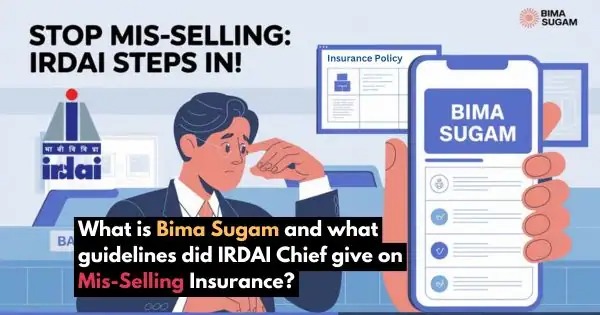1. This appeal is by Seth Narayandas, who described himself as the proprietor of ''Ambarish Patel and Company, Itarsi'', in the suit filed to recover a sum of Rs. 5,506/4/-from the two defendants, Dr. Shardaprasad Nigam and Chandragopal, who are respondents here.
2. On 14th August 1951, Dr. Shardaprasad Nigam entered into a contract with Ambarish Patel and Company to supply bamboos, for which he received two hundis for Rs. 2,000/-and Rs. 3000 respectively. The agreement between Dr. Nigam and the Company was signed by Ishwarlal (D. W. 2): Later this agreement was cancelled, and D. Nigam undertook to return the money which, he admitted, was in deposit with him. This was on 2nd October 1951. Both the agreement and the cancellation are incorporated in one document, which is Ex. P-5.
3. The defendants, when they appeared in Court, raised the plea that the suit was filed on behalf of an unregistered partnership and was, therefore, incompetent. The question, therefore, arose whether Narayandas was suing in his personal capacity or on behalf of an unregistered firm of partners, The trial Court found that Ambarish Patel and Company was an unreg steredp artnership of Narayandas, Ishwarlal and one other. In answer to the statement of the defendants, Narayandas had taken the plea that Ishwarlal was his servant and not a partner, and that the third person was associated with his business merely to learn business methods. The questions in this appeal, therefore, are: (i) whether the finding given by the trial Court is correct; and (ii) if so whether the suit filed by Narayandas can be said to be by or on behalf of the partnership and is saved by sub-section (3) of Section 69 of the Indian Partnership Act.
4. The witnesses in the case were examined in the reverse order. --the burden being placed upon the defendants in view of their having raised the plea of partnership, and also because of the admission contained in Ex. P__5 that the money was in deposit for Ambarish Patel and Company. The defendants examined five witnesses, including Dr. Nigam and Ishwarlal. Ishwarlal, as D. W. 3. deposed that he was a partner of Ambarish Patel and Company and was paid Rs. 3000 by way of remuneration, but no share in the profits and that he did not care to claim his share in the profits. He explained how the partnership was working and who were the members thereof. This evidence of Ishwarlal was corroborated by defendant Dr. Nigam who as D. W. 1 stated that Ishwarlal and Nirayandas had admitted the fact of partnership to him when the agreement was entered into. The other witnesses, namely, Jainarayan Dixit (D. W. 2) and Deokinandan (D. W. 4) also deposed to statements made from time to time by Narayandas that the business of Ambarish Patel and Company was being carried on in partnership with Ishwarlal and one other. As against this, the plaintiff alone entered the witness-box in rebuttal, though he had stated earlier that he would examine no less than six witnesses. He denied the partnership and stated that Ishwarlal was his servant, as also the third person, who was alleged to be associated in the partnership.
5. The trial Court on this evidence and the further fact that Ishwarlal had entered into the original agreement with the first defendant Dr. Nigam, came to the conclusion that partnership was proved. It therefore, held that the suit was incompetent, being filed by an unregistered firm of partners, and dismissed it.
6. In this appeal, it is contended that the finding given on the question of partnership proceeds on no evidence or, at any rate, on insufficient evidence. We were taken through the provisions of the Indian Partnership Act to slow the essence of partnership, and it was stated that the admissions of Narayandas could not be construed as sufficient to prove a partnership. It was also contended that the evidence of the defence witnesses was extremely inconclusive and, therefore, could not be relied upon. We agree that as between contending partners fighting a litigation for division of assests or dissolution, or for accounts, a higher standard of proof than is furnished here may be required, because findings may have to be given on all the terms of the partnership agreement. But in a case in which an unregistered firm or a quondam partner thereof seeks to claim money from a third party on behalf of the partnership without even alleging that the partnership is dissolved, evidence of partnership may be more slight than is needed for the first kind of case. Narayandas could not allow a mere servant to sign Ex. P--5 on his behalf. This conduct clearly goes against him, because it raises a strong probability against him that Ishwarlal was not a servant but a partner. It is to be noticed that the agreement was entered into by Ishwarlal and was cancelled by Narayandas. This could only be if both of them were partners. The evidence of Ishwarlal seems to us to be fairly convincing and the conduct of Narayandas in going about acknowledging the fact of partnership lends considerable support to the probabilities and the sworn testimony of Ishwarlal. It is surprising that in spite of the promise made by him to bring as many as six witnesses, no other witness was examined Nor did he bring his account-books in the Court to establish that Ishwarlal was only a servant and was being paid a salary. The fact that as much as Rs. 3,000 were paid to Ishwarlal for a work which admittedly went on for 10 months proves clearly that he received this payment as his share of profits, though it was described as his remuneration for his work during this period. We are, therefore, satisfied that there is no material on which we can say that the finding given by the Court below was erroneous on this part of the case.
7. This brings us to the argument which was raised before us on the ambit of sub-section (3) of Section 69 of the Indian Partnership Act. It was contended that sub-section (3) of Section 69 is in the nature of a proviso to sub-sections (1) and (2), Reference was made to the powers of a partner to bind his copartners by individual acts even after the dissolution of the partnership. We were taken through the terms of Section 47 of the Act and it was contended that in view of the fact that Ishwarlal had stated that the partnership came to an end in the same year, Narayandas as a partner was entitled to bring a suit for realization of the assets of the partnership. Reliance was upon a decision of Chagla, J. (as he then was) placed reported in Bhagwanji Morarji vs.
8. We think however, that these propositions, as adumbrated by Beaumont, C. J. and as applied in the case by Chagla C. J., cannot be useful to the appellant in the present appeal. The suit did not purport to be by a partner on behalf of the unregistered dissolved firm, The other two partners of the firm were not made parties to the case. The suit was based on the allegation that there was no partnership at all. On such facts a plaintiff like Narayandas cannot take advantage of the provisions of sub-section (3) of Section 69 of the Indian Partnership Act He must stand by his case, and fail on the view that he was entitled to sue not in a personal capacity but only as a partner of the unregistered dissolved firm, Had it been necessary for us to pronounce upon the question whether a single partner out of many of an unregistered but dissolved firm can sue independently, we would have been inclined to say that he can not without joining the other ex-copartners, However, no such attempt has been made in this case, and the suit had been brought as if there was no partnership in existence and this has been proved to be wrong.
9. It was contended lastly that even a partner can bring a suit when the transaction is in his own name, That would be so, if the other party was dealing with him only and had no notice of the existence of a partnership. In the present case, the agreement was entered into by one partner and was cancelled by the other. The defendants had stated that they were not dealing with the plaintiff but were dealing with Ambarish Patel and Company, a firm of partners. In these circumstances, we do not think that the principle which we have been invited to accept can be made applicable here.
10. The result is that the appeal fails and is dismissed with costs.

